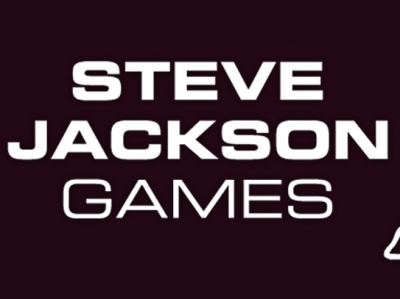 Charles Ryan, COO of Monte Cook Games, read Scott Thorne's recent column explaining why he doesn't bite on Kickstarters for retailers (see "Rolling for Initiative--Five Reasons I Skip Kickstarter Retailer Levels") and had this to say.
Charles Ryan, COO of Monte Cook Games, read Scott Thorne's recent column explaining why he doesn't bite on Kickstarters for retailers (see "Rolling for Initiative--Five Reasons I Skip Kickstarter Retailer Levels") and had this to say.As the COO of a company that's held--and may again hold--successful Kickstarter campaigns that included retailer-level rewards, I genuinely appreciated the insights Scott Thorne provided in today's Rolling for Initiative. I found some of his points, particularly regarding cash flow and late deliveries, thought-provoking and useful.
But some of his other points reflect misconceptions that are damaging to retailers, Kickstarter campaigns, and the hobby games industry in general.
In particular, I want to tackle Scott's "zero-sum" calculation: That product shipped to Kickstarter backers saturates the marketplace, leaving fewer interested purchasers for retailers to sell to.
But before I do that, I want to back up to something Scott said earlier in the article: That the "big boys" of game publishing don't bother with Kickstarter because they don't have cash flow issues.
Boy howdy, this really misses the point of crowdfunding.
Yes, funding a project in advance is a critical benefit of a Kickstarter or Indiegogo campaign. But the beauty of this model goes way, way beyond that. For the right project, a Kickstarter campaign draws far more attention to a game than any advertising or marketing spend ever could. Crowdfunding campaigns also come with tons of free market research: You gain oodles of actionable insight on a product line well before you finalize your production schedule, writing, and graphic design. You make a better, more sellable game because of Kickstarter. (And if your game is destined to flop, it probably fails to fund--so those games stay out of the marketplace.)
This brings me back around to the zero-sum scenario. In the case of Numenera (which was a record-setting Kickstarter campaign, and remains one of the largest game-related Kickstarters ever), we had thousands of backers and we shipped thousands of books. Given the level of independent RPG sales these days, if Scott was right, we should have sucked every bit of oxygen out of the room--and then some. Instead, Numenera was one of the biggest RPG launches at retail in 2013.
Not in spite of Kickstarter, but because of it.
Because the interest--the hype--it generated outstripped anything we could have accomplished with the largest of marketing campaigns. Because the Kickstarter campaign gave us a platform to tell the product's story in detail to an eager audience. And because that story then rippled out to tens of thousands of gamers, many times more than those who actually backed the campaign. For us, it even generated licensing opportunities with AEG, InXile, Q-Workshop, and others that further built its audience and reach. We delivered to retailers an eager army of purchasers, dollars in hand, ready to buy from your shop. Because of Kickstarter.
It's not a zero-sum game--it's the exact opposite.
I could quibble with a couple more of Scotts points (for example, I doubt that the percentage of Kickstarter games that miss release date is much different from independent games launched conventionally), but those are pretty minor.
A bigger issue is why this is important. Scott notes that Kickstarter activity peaked last year, but from where I'm sitting nothing could be further from the truth. Crowdfunding has been enormously successful for many companies, large and small, often demonstrating that categories given up for dead (miniatures and RPGs in particular) are in fact capable of selling tens of thousands of units and generating millions of dollars in business. I would expect this to become a permanent part of the way games are marketed, and if the big boys aren't on board now, it's more because of inertia than cash flow (and I'm saying this as an ex-Wizards of the Coast Brand Manager). The marketing advantages are so huge, it's only a matter of time before they get involved too.
Does that mean that supporting Kickstarter as a retailer makes sense? Scott's point about retailer cash flow is very valid, so that's a call every store will have to make themselves. If manufacturers want them aboard, it's up to us to offer benefits (such as the highly-successful store tour Monte Cook is on right now) that give retailers value that more than offsets the costs. For that reason, I appreciate every bit of intel I can gain from retailers like Scott. But I also hope retailers see Kickstarter not as competition, but as a new, highly successful means of driving sales numbers up for both publishers and retailers.
The opinions expressed in this Talk Back are solely those of the writer, and do not necessarily reflect the views of the editorial staff of ICv2.com.







